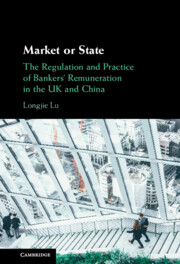This article contributes to our understanding of the formation of policy networks. Research suggests that organisations collaborate with those that are perceived to be influential in order to access scarce political resources. Other studies show that organisations prefer to interact with those that share core policy beliefs on the basis of trust. This article seeks to develop new analytical tools for testing these alternative hypotheses. First, it measures whether perceptions of reputational leadership affect the likelihood of an organisation being the target or instigator of collaboration with others. Second, it tests whether the degree of preference similarity between two organisations makes them more or less likely to collaborate. The article adopts a mixed‐methods approach, combining exponential random graph models (ERGM) with qualitative interviews, to analyse and explain organisational collaboration around United Kingdom banking reform. It is found that reputational leadership and preference similarity exert a strong, positive and complementary effect on network formation. In particular, leadership is significant whether this is measured as an organisational attribute or as an individually held perception. Evidence is also found of closed or clique‐like network structures, and heterophily effects based on organisational type. These results offer significant new insights into the formation of policy networks in the banking sector and the drivers of collaboration between financial organisations.


